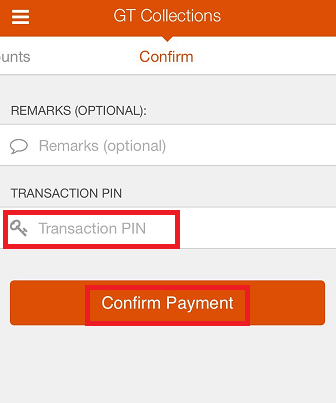Sports Betting Rising as States Let Gamblers Wager Online
In the 27 states where it’s legal, placing bets from a phone or other device has opened the door to much larger audiences.
Placing a bet on a video game or match is as easy as opening an app on your phone.
From office swimming pools to gambling establishments to online betting apps, March Madness attracts sports enthusiasts and casual audiences alike to predict a winner of the yearly NCAA college basketball tournament.
Sports wagering in casinos or racetracks is now legal in 38 states and Washington, D.C. And that number keeps growing. As of this month, 6 more states-Alabama, Georgia, Hawaii, Minnesota (tribe handled), Missouri and Oklahoma-had steps pending to authorize sports betting.
Related: March Madness Induces the Bets
Some states have made betting even easier: 27 states with legal sports betting have also licensed online sports wagering (with legislation presently pending in Mississippi). Online sports wagering unlocks to much larger audiences due to the fact that users can wager from a computer or mobile phone throughout the state.
While sports wagering broadened rapidly after the U.S. Supreme Court eliminated the federal prohibition in 2018, it’s not quite the wild west, as states have developed some guidelines.
For example, some states restrict which sporting events are subject to bets. All states forbid wagering on high school sports, but college sports betting is controlled differently in every state. Some states restrict betting on all college sports and athletic events, while others just forbid wagering on in-state teams. Other states have no restrictions on college sports wagering.
Here are details on how states manage:
– Blanket prohibition on all college sports and athletic occasions: Oregon and Tennessee.
– Prohibition on in-state groups and in-state college events: D.C., New Hampshire, New Jersey, New York City, Rhode Island ** and Vermont.
– Prohibition on in-state teams: Connecticut, Delaware, Illinois, Iowa, Maine, Massachusetts *, South Dakota **, Washington and Wisconsin.
– No limitations: Arizona, Arkansas, Colorado **, Indiana, Kansas, Kentucky, Louisiana, Maryland, Michigan, Mississippi **, Montana, Nebraska, Nevada, New Mexico, North Carolina, Ohio, Pennsylvania, West Virginia and Wyoming.
* Massachusetts enables wagering on in-state teams when those teams are participating in a competition.

** Rhode Island, South Dakota, Colorado and Mississippi likewise restrict proposal bets on college sports and athletic occasions. So-called prop bets are side wagers that have nothing to do with the outcome of an occasion, such as wagering on the first string to score, or perhaps the length of the pregame national anthem.
Lottery-Run Sports Betting

Lottery commissions in numerous jurisdictions-Washington, D.C., Montana, New Hampshire, North Dakota, Oregon, Tennessee, Virginia and Wyoming-partner with personal operators to offer sports wagering. In the district, the lotto commission provides its own sports wagering item in addition to partnering with private operators.
Does Sports Betting Pay Off?
States generate revenue from sports betting by taxing profits. Tax rates on sports wagering variety from 6.75% in Iowa to 51% in New York City and Rhode Island. A couple of states levy various rates on retail and online betting. Retail gaming operators expressed issue that online video gaming would siphon off casino and racetrack consumers and harm their bottom lines. In reaction, policymakers in some states developed a two-tier tax structure to offer retail sports betting a lower tax rate. While a lot of states have a flat rate for sports wagering revenue, Arkansas and Mississippi use graduated tax rates, and Vermont different rates on the 3 different sports betting operators. (For present state tax rates, see March Madness Induces the Bets.)
Since the legalization of sports wagering, states have actually gathered numerous millions of dollars in tax profits. Most of that has actually come from online sports wagering since individuals who don’t regular gambling establishments can get in on the action through a mobile app or website. And more wagering means more incomes.
Take Arkansas and New York City, for circumstances. Both states broadened sports betting to include online wagering in 2022. The next year, taxation doubled in Arkansas, with earnings going from less than $2 million in financial year 2022 to over $4 million in financial 2023. Similarly, New York gathered less than $2 million in tax earnings throughout the very first 9 months of financial 2021; after online sports wagering began in the last three months of financial 2021, earnings collections leapt to $163 million. The big increase in collections is due in part to the 51% tax rate on online sports wagering.
The experience in other states is comparable. In financial 2023, online sports betting made up 92% of gross wagering invoices in Indiana and 89% of gross invoices in Pennsylvania.
However, tax profits created from sports wagering is simply a fraction of the video gaming pie compared to total gambling establishment profits. According to the American Gaming Association, industrial video gaming operators contributed over $14.4 billion in video gaming taxes in 2023, compared with $2.1 billion from the sports wagering market.
Where Does the Money Go?
Sports betting offers a consistent income source for states, but it’s not without expenses.
Gambling addiction is an issue worsened by much easier access to sports wagering. In reaction, lawmakers in 14 states and D.C. allocate a portion of sports wagering earnings for issue betting treatment. Other typical recipients of wagering profits consist of education programs, local governments and labor force advancement programs. Many states transfer the profits into their basic funds and allocate the funds where they choose.




